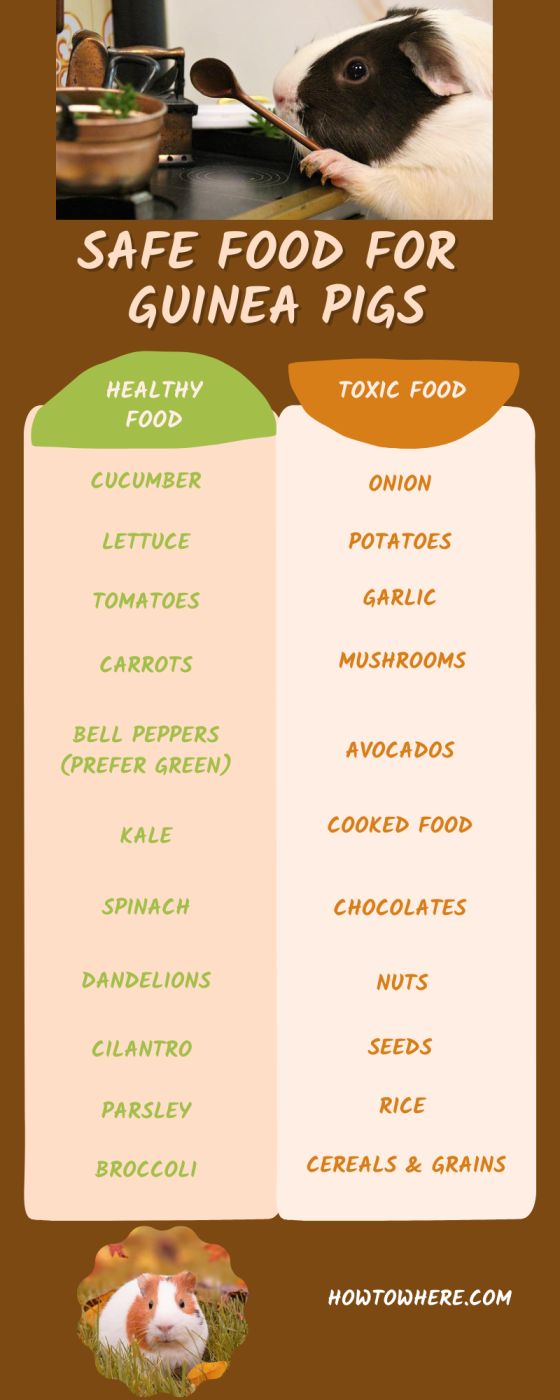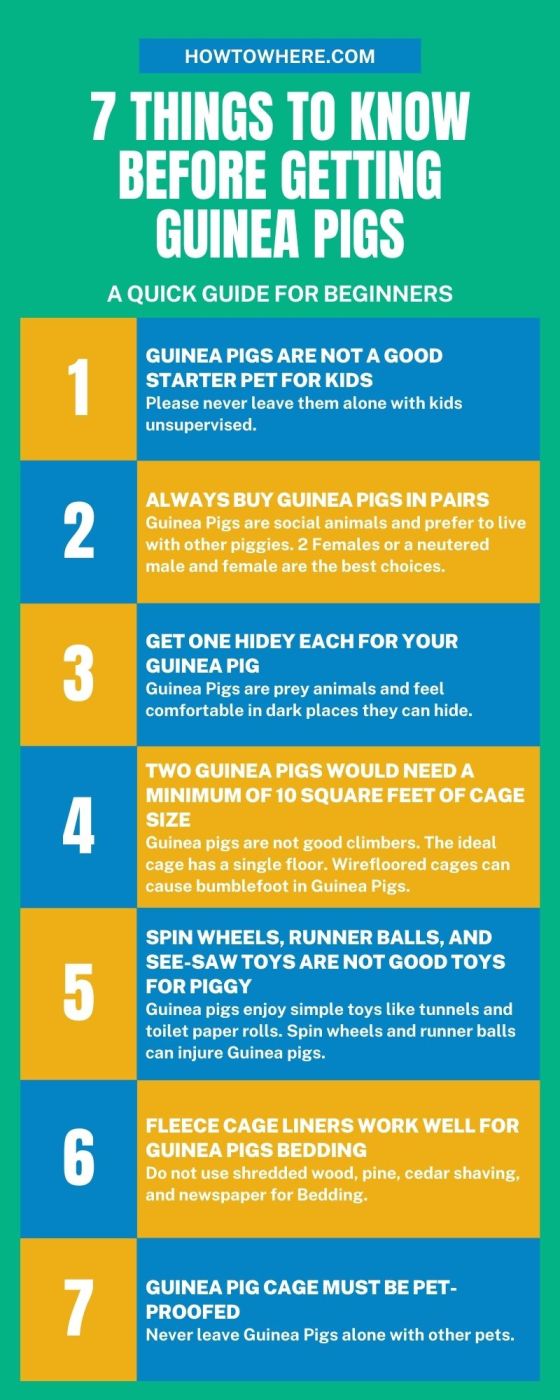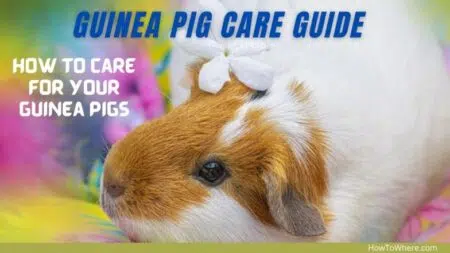Guinea pigs are lovable little two-pound potatoes. Their wheek-wheeeks can bring an indescribable amount of happiness into your life.
Your piggy will play with you, lick your fingers and sleep on your shoulders. As soon as they hear your footsteps, they will do all the wheek! Wheeek!, popcorn around and spread their cuteness. With care and patience, the Guinea Pig becomes your best companion and never makes you feel lonely.
They will listen to you ramble about your day and then squeak about what they did throughout the day, which was basically eating, pooping, sleeping, staring at the wall, playing with toilet paper rolls, and then pooping, eating, and playing some more.
They recognize their owners and jump with joy when you touch a crinkly bag. Guinea pigs are always hungry and would scream bloody murder if you delay bringing them their lettuce. They are such demanding furry pets.
Here are some very important things you should know If you are planning to get Guinea Pigs.
(Look for Guinea Pig shelters to adopt Guinea Pigs)
What you need to know before getting Guinea Pigs as pets
-
Guinea Pigs are NOT a good starter pet for kids.
These docile critters need lots of care and attention. Please never leave them with kids unsupervised. They are delicate animals, and any sudden movement from children can startle them and cause your piggy serious injuries.
-
Guinea Pigs must always live in pairs of two or more.
For beginners, the ideal combination is two female pigs or a neutered bore and a female. Unneutered Guinea pigs can have a lot of babies. Back-to-back pregnancies are not good for their health. A sorority of females can work well. However, three or more male guinea pigs hardly work once males reach puberty at around six months of age. It doesn’t matter if they are brothers.
-
Give hideouts to Guinea Pigs.
Guinea Pigs are prey animals and feel comfortable in dark places they can hide. They tend to choose their hideouts and prefer not to share them with another piggy. Always get one hidey each for your guinea pig. If you have more than two Guinea pigs, it is best to give them hidies with two exits, so the piggy is not trapped in case a fight breaks out.
-
A pair of Guinea Pig would need a minimum of 8 square feet of cage size.
Most cages sold at pet shops are not suitable for two guinea pigs. Go for a Midwest cage or build a cc cage. Guinea pigs are not good climbers. The ideal cage would have a single floor and not multiple stories for them to climb. They like to popcorn and do zoomies in a good size single-floor cage with enough space to run. Do not keep Guinea pigs in a wire-floored cage. It can cause bumblefoot.
-
Many toys that are sold as Guinea Pig toys are actually very dangerous for them.
Spin wheel, runner balls, and see-saw toys are for hamsters and other rodents but not Guinea Pigs. These toys can hurt your piggy. Never use a leash on a Guinea Pig. It is cruel, and walking on a leash can seriously injure their delicate spine. Chew toys made of palm and cedar are harmful to them. Guinea pigs enjoy simple toys like tunnels and toilet paper rolls.
-
For bedding, Fleece cage liners work well for Guinea pigs.
Fleece allows the liquid to pass through and does not soak. Avoid shredded wood bedding, especially pine or cedar for bedding. Newspaper bedding would start to smell bad.
-
The Guinea pig cage must be pet-proofed.
No matter how well-behaved your dog or cat is, never leave the guinea pig alone with other pets. If you let your Guinea pig free roam in the house, make sure to remove any sharp edges or toxic materials they can chew on, like the way you would baby-proof your home.
Guinea Pig Play Time –
Watch More Videos on YouTube
When your guinea pigs bring so much joy to your life, why not take better care of them?
Here are a few Tips to Make Your Guinea Pig Happy
-
Feed Guinea Pigs Fresh Hay and Quality Grass
Gastrointestinal health is important for Guinea Pigs. Guinea Pigs need fresh hay and vegetables for a healthy digestive system and the growth of teeth. They require lots of hay daily to stay active and healthy. Neat grass provides them with fiber and dietary nutrients. Avoid alfalfa and offer them with timothy and orchard grass. They’re going to love it.
The way to the Guinea pig’s heart is through its stomach. Along with hay, give them a variety of vegetables and a small quantity of fruits as a treat. They need Vitamin C from their diet. Lack of Vitamin C can cause Scurvy in Guinea Pigs.
Safe Vegetables for Guinea Pigs
- Cucumber
- Lettuce
- Tomatoes
- Carrots
- Bell Peppers (prefer green)
- Kale
- Spinach
- Dandelions
- Cilantro and parsley
- Broccoli
Toxic food for Guinea Pigs
- Onion
- Potatoes
- Garlic
- Mushrooms
- Avocados
- Cooked Food
- Chocolates
- Nuts and seeds
- Rice, cereals, and grains
-
Guinea Pigs Should Always Have Access to Fresh Water
Guinea pigs need fresh water every day. Instead of refilling, prefer to replace the leftover water. Guinea pigs tend to get their spill-proof water bowl dirty, so instead of an open container, provide them with a no-drip and leak-proof water bottle.
If the piggy is often fed with fluid-rich vegetables like cucumbers, they will tend to drink less water.
-
Keep Guinea Pig Cage Clean
Keeping Guinea Pigs in a clean and hygienic habitat will prolong their life. Sanitary precautions will help them not get sick or infected by any kind of mites. It will help you save time and money on vet bills. A clean place for guinea pigs can elevate their mood.
Spot clean their cage daily and deep clean at least once a week and, if possible, then twice. You’ll see them popcorning right after you finish cleaning. So much fun to watch!
-
Take Care of Guinea Pig Fur
If you have long-haired Guinea pigs, softly brush their fur to keep their coat in good condition. It will also clear tiny insects, which irritate and harms them. You can gently use a small comb or brush on their fur. It will also relax them. Brush in the direction your guinea pig’s hair is going.
While brushing their fur, you can also check their skin areas for skin problems like sores and dryness. Prefer doing it once or twice a week. That too very gently, or they’ll start losing their fur.
-
Nails Trimming is Important for Guinea Pigs
Guinea pigs’ nails must never be ignored. Clip their nails regularly. There is no need for any specific frequency. They can be clipped when they seem sharp and long. Unchecked nail growth can cause serious problems.
Guinea pig’s nails need to be trimmed to avoid serious issues like curvature in nails, which ultimately lead your pig to cause self-injury. Their nails can even curl into their foot pads leading to further pain and limping.
-
Bath Guinea Pigs Between Every Six Months
Guinea pigs naturally keep themselves clean. They are very good at self-grooming. However, it would be best if you gave your little pet a bath once in a while. Make sure the water is at room temperature. Avoid showering them during extreme winters. It may cause Pneumonia.
Use shampoos made only for guinea pigs. Any other shampoo can harm their skin and can even cause serious illness.
Since guinea pigs keep themselves clean, you can bathe them twice a year.
Here is the Guide on How To Bathe Guinea Pig.
-
Guinea Pigs Like Comfortable and Cool Places
Guinea pigs like cool and dark places to live. Higher temperatures (75 degrees or more) can make them restless and sick. You can keep them in the shelter outside if it is secured from all sides to keep them safe from other animals. Avoid outdoor shelters with direct sunlight, especially during summers.
Keeping your guinea pigs inside your home during extreme weather is best. Just think that if you’re not comfortable at a certain temperature, they would probably feel the same way.
Take your guinea pigs out of their cage for a free roam. They love exploring and roaming around. Do remember to put hideouts in case they feel afraid initially.


When Your Guinea Pigs Are Upset with You –
Let us know what you think in the comments below.

Hunaid Germanwala is a digital marketer and content creator at Health Products For You since 2014. He has an MS from Ulm University in Germany. His mind is always buzzing with creative ideas and is eager to explore new perspectives. His motto in life is “Better to Light the Candle than to Curse the Darkness.”











I can not participate now in discussion – there is no free time. I will return – I will necessarily express the opinion.
Thank you for the information. I am a new Guinea pig parent.